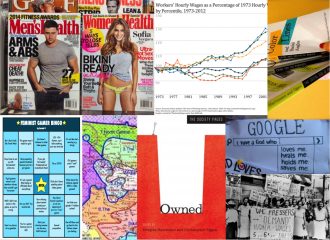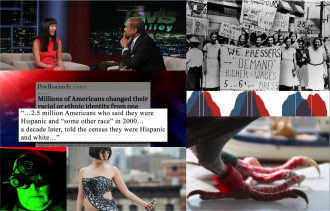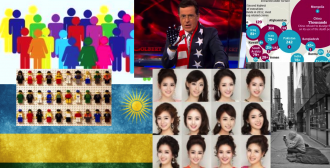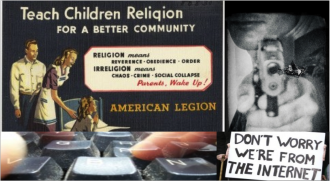 “Every school offers financial aid services, but listen to what the University of Minnesota is doing,” began Michelle Obama at a 2014 White House summit. “They’re committing to expand those services to include financial literacy programs to help students and their families manage the costs of college.”
“Every school offers financial aid services, but listen to what the University of Minnesota is doing,” began Michelle Obama at a 2014 White House summit. “They’re committing to expand those services to include financial literacy programs to help students and their families manage the costs of college.”
In fact, all incoming students at the U of M now get lessons in credit and debt as part of the Live Like a Student Now So You Don’t Have to Later campaign. The website, Facebook, and campus posters offer a steady stream of practical advice on everything from buying generic ketchup to finding the free days at local museums. A Plan Your Debt page even suggests the maximum advisable debt limit for students planning careers as graphic designers, nurses, and accountants.
Such programs can be a great help to individual students, but they also obscure a bigger sociological story: structural and institutional changes place young people today at risk of enormous debt loads. When I started college at the University of Wisconsin, the annual tuition was only $994 per year ($2,442 in today’s dollars), which barely covers a course these days. So, it hardly seems fair to blame today’s students for accumulating more debt than I did—or to blame their debt problems on $4 lattes.
In C. Wright Mills’ famous terms, the sociological imagination reveals the link between our “personal troubles” with debt and the broader “public issues” that have placed us in this position. And it isn’t just students. For the past five years, headlines have shouted about all manner of debt—people, companies, and even cities declaring bankruptcy, families losing their homes to foreclosure, and, the Occupy Wall Street movement arising to challenge the “1%” who prospered in the Great Recession. That’s why we chose debt as the subject of a new TSP volume, Owned, due out this fall with WW Norton and Company.
In curating TSP and putting the book together, we’ve been learning a lot about the power and importance of a sociological approach to debt and inequality. Starting next week, we’ll be running a series to showcase some of these pieces. We’ll have a real expert, Kevin Leicht, kick us off this Monday by explaining the development and depth of the debt crisis. With hard data and vivid description, he shows how middle-class families suffer when borrowing replaces earning. On Wednesday, Leicht offers a hard-hitting progressive critique of the “politics of displacement” that distract us from needed economic reform, while proposing three steps to reinvigorate the American Dream. We’ll conclude Leicht’s series on Friday with a cogent piece contrasting the old “pull yourself up by your bootstraps” success narrative with the current structural realities. In the weeks to come, we’ll be running more new features, including interviews and articles with contributors like Dalton Conley, Bill Domhoff, Rachel Dwyer, Erin Hoekstra, Karyn Lacy, Rahsaan Mahadeo, and Andrew Ross. And don’t forget earlier pieces such as Out of the Nest and into the Red, where Jason Houle shows exactly how debt has shifted across the last three generations, Alexes Harris on the Cruel Poverty of Monetary Sanctions, David Schalliol’s Debt and Darkness in Detroit, and Rob Crosnoe on the Hourglass Economy.
The best sociology has long been critical of existing social arrangements and idealistic about the alternatives. And the new sociology of debt (reflected here and in projects like debtandsociety.org) is no exception. In detailing the grand society-level problems of the debt crisis, these TSP features point to social solutions on both ginormous (global climate reparations) and modest (a lone shopkeeper lighting his street) scales. And making small reforms to alleviate human suffering is hardly incompatible with changing the structural conditions that create or sustain the problem. So students can simultaneously rally for lower tuition and loan rates for everyone as they learn about personal finance to manage their own debt. Some might dismiss the latter efforts as “Band-Aids” for the structural issues, but we wouldn’t discount them completely. A well-applied Band-Aid can sometimes stop the bleeding while we pursue a more lasting fix to our problems.






